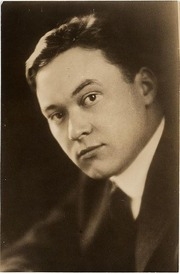On this date in 1889, Walter Lippmann was born in New York City. He graduated from Harvard University in 1909 and went on to become a prominent journalist, editor and author. He became co-founder and editor of The New Republic in 1913, editor of the New York World in 1923 and a columnist for the New York Herald Tribune in 1931. At the Herald Tribune, Lippmann wrote the nationally syndicated column “Today and Tomorrow,” which ran in 250 newspapers for more than 30 years.
Lippmann was also a prolific author whose works include A Preface to Politics (1913), Public Opinion (1922) and The Cold War (1947), which popularized the term “cold war.” He was a U.S. delegate to the Paris Peace Conference of 1919 at the close of World War I, where he helped to write the Covenant of the League of Nations. Lippmann was awarded two Pulitzer Prizes in 1958 and 1962 for his column “Today and Tomorrow,” as well as the Presidential Medal of Freedom in 1964. He married Faye Albertson in 1917. After their divorce in 1937, he married Helen Armstrong in 1938.
In his popular book A Preface to Morals (1929), Lippmann writes about having morality without religion and explains that religion should not be a modern source of morality. “When men can no longer be theists, they must, if they are civilized, become humanists,” he wrote. “Once you weaken the belief that the central facts taught by the churches are facts in the most literal and absolute sense, the disintegration of the popular religion begins.” (D. 1974)


